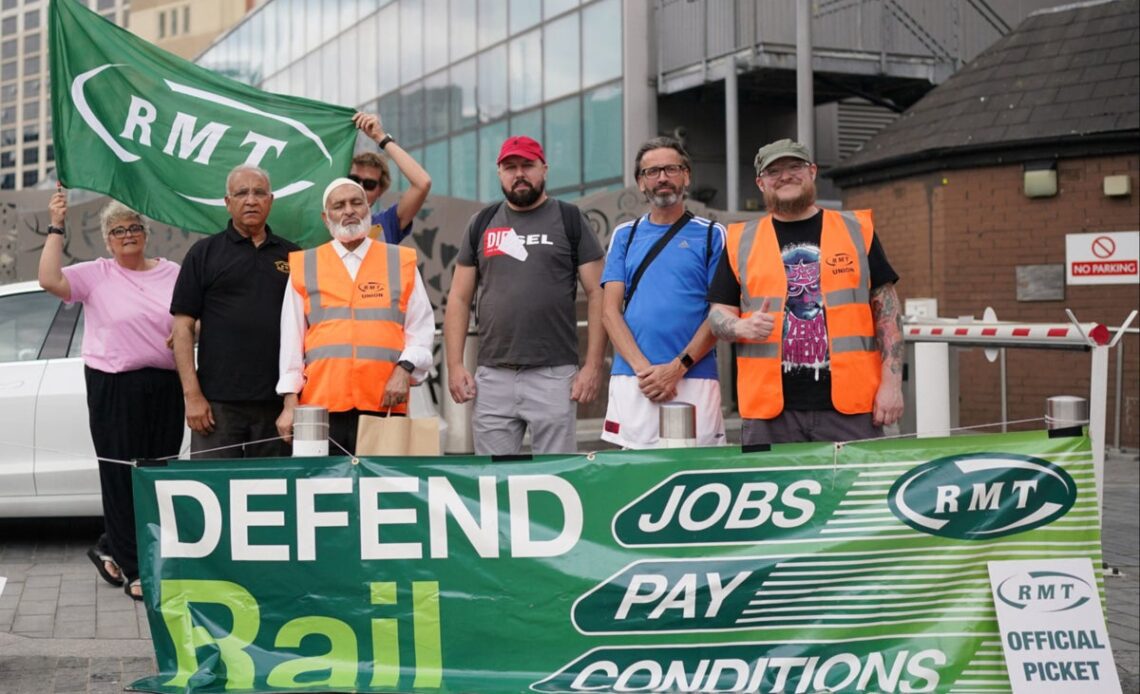Rail passengers will find services disrupted by strikes on five of the first nine days in October.
The RMT union has called out more than 40,000 workers employed by Network Rail and 15 train operators on Saturday 8 October. The stoppage will also affect trains on the following day.
The newly announced strike is in addition to industrial action on Saturday 1 October by the RMT and Aslef, the train drivers’ union, which will disrupt trains the day after.
The drivers working for a dozen train operators will also walk out on Wednesday 5 October. It means that of the first nine days of next month, normal services can be expected only on 3, 4, 6 and 7 October.
Announcing the additional strike, the RMT general secretary, Mick Lynch, confirmed that the union had been involved in talks with the new transport secretary, Anne-Marie Trevelyan.
Mr Lynch said: “We welcome this more positive approach from the government to engage with us as a first step to finding a suitable settlement.
“However, as no new offer has been tabled, our members have no choice but to continue this strike action.
“We will continue to negotiate in good faith, but the employers and government need to understand our industrial campaign will continue for as long as it takes.”
The main effect of the strike will be to close down at least half the passenger railway due to the absence of around 5,000 Network Rail signallers. Some trains will run on the remaining portion of the network, but with a much-reduced service.
A Network Rail spokesperson said: “This latest strike will again mean very significant disruption for passengers, and we’ll be asking people to only travel if absolutely necessary due to the reduced service that will be in place. Full timetables for all upcoming strike days will be published in due course.”
The train operators include the large London-focused firms: Greater Anglia, GTR (including Southern, Great Northern, Thameslink at the Gatwick Express), Southeastern and South Western Railway.
Key intercity operators will be affected: Avanti West Coast, CrossCountry, East Midlands Railway, Great Western Railway, Hull Trains, LNER and TransPennine Express.
The remaining operators are: Chiltern Railways, c2c, Northern Trains and West Midlands Trains.
The rail unions are engaged in a deep and bitter dispute over pay, jobs and working practices with Network Rail, the train operators and the government.
Union bosses say the Department for Transport (DfT) is pulling strings and…
Click Here to Read the Full Original Article at The Independent Travel…
